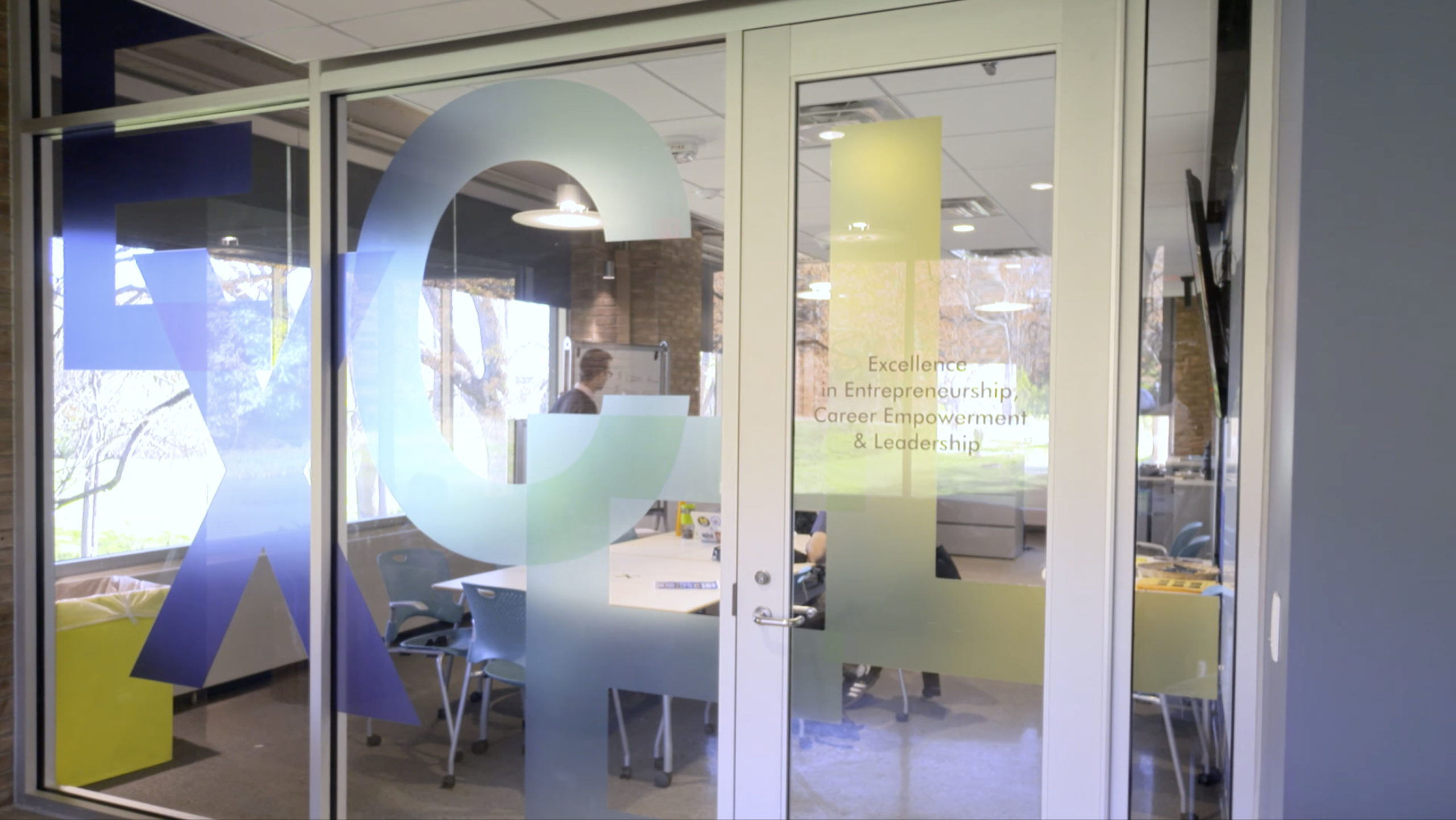by Nicholas Gallo
The University of Michigan captured the No. 1 spot on the undergraduate entrepreneurship programs rankings published by The Princeton Review and Entrepreneur magazine.
The university’s graduate-level program was also ranked in the top 10.
“This No. 1 ranking reflects the collaborative, broad and diverse nature of entrepreneurship across the University of Michigan,” said Jonathan Fay, the Dixon and Carol Doll Executive Director of the Center for Entrepreneurship in the U-M College of Engineering. “We’ve seen tremendous growth in the interest of our students, and we’re incredibly proud that they’re taking what they learn and making an impact in the community.”
U-M’s entrepreneurship network is campus-wide, in the classroom and beyond. Today, there are nearly 5,000 students – 10 percent of the total undergraduate student body – involved in entrepreneurship activities. The university hosts 15 centers and programs, over 30 entrepreneurial student organizations, 68 classes, multiple pitch competitions, two accelerators, immersion treks to nearly a dozen entrepreneurial ecosystems around the country, and more. In 2015, U-M launched a Minor in Entrepreneurship open to students across campus. Nearly 500 students from more than 100 majors were enrolled in the 2017-2018 academic year.
“What sets the University of Michigan apart is our commitment to pushing the boundaries of education and delivering the action-based learning experiences that build an entrepreneurial mindset – regardless of the career path our students seek,” said Stewart Thornhill, executive director of the Zell Lurie Institute at Michigan Ross. “Every program we offer is meant to amplify success for entrepreneurs; from business plan competitions to working inside of a new venture to investing real dollars in our startups.”
In the past five years, students enrolled in the Entrepreneurship minor or its predecessor program have launched 414 companies that raised $18.3 million. And 25 percent of those companies are still in business. (Nationally, between 30 percent and 50 percent of new businesses fail during the first two- to five years.)
U-M’s programs are coupled with project-based, experiential learning accessible to students in all 19 schools and colleges. Some examples:
- At TechLab@MCity, students work in the emerging field of autonomous vehicle and advanced mobility startups, learning in the classroom and applying that knowledge in hands-on projects at the MCity Test Facility.
- The EXCEL Lab (Excellence in Entrepreneurship, Career Empowerment & Leadership) at the School of Music, Theatre & Dance helps performing arts entrepreneurs explore career paths through mentorship, fellowships and courses.
- At the TechArb and Desai accelerators, student startups can access space, tools, internship opportunities, and mentorship. These accelerators are co-managed by the Center for Entrepreneurship and the Zell Lurie Institute.
- The optiMize student organization has helped 2,500 students develop 400 social impact projects since 2012. Blueprints for Pangaea, for example, has distributed more than $2 million of wasted medical supplies to hospitals in need.
- Innovate Blue, U-M’s hub for entrepreneurship and innovation, issues the Made at Michigan annual magazine—a compilation of entrepreneurship highlights, with a special focus on student ventures created over the course of the year.
- Innovation in Action, a collaboration of Public Health, Center for Entrepreneurship and Zell Lurie Institute, empowers students to design solutions to the global challenges articulated in the UN Sustainable Development Goals.
- The Michigan Business Challenge (MBC) is a campus-wide, multi-round business plan competition where student teams have the opportunity to win cash prizes totaling over $100,000, gain feedback from leaders in the business community, and expand their business network.
- The Eugene Applebaum Dare to Dream grant program moves University of Michigan students through the business creation process by offering business development seminars and awarding $500-$5,000 in grants to individuals and/or student teams.
“Our campus culture is one of collaboration mixed with the relentless energy and optimism of our students and faculty across the entrepreneurial ecosystem—from creativity and the arts to cutting edge research and business savvy,” said Mark Clague, associate dean for academic and student affairs at the School of Music, Theatre & Dance. “It’s what makes the University of Michigan an extraordinary place to live, learn, invent, and make a difference.”
View the full rankings at Entrepreneur. They will be published in the December issue of Entrepreneur magazine. The feature also outlines key insights for potential students, including the number of entrepreneur-related courses offered and the number of startups launched by grads in the past five years from each program.
The Princeton Review conducted a 45-question survey from May through August 2018. The survey asked schools to report on levels of their commitment to entrepreneurship studies inside and outside the classroom. More than 40 data points were analyzed for the tally to determine the rankings. Topics included: the percentage of faculty, students, alumni actively and successfully involved in entrepreneurial endeavors, the number and reach of mentorship programs, scholarships and grants for entrepreneurial studies, and the level of support for school-sponsored business plan competitions.
Michigan’s undergraduate entrepreneurial ecosystem is anchored by six entities: The Center for Entrepreneurship at the College of Engineering; the Zell Lurie Institute, housed at the Ross School of Business; the EXCEL Lab at the School of Music, Theatre, and Dance; optiMize in the College of Literature, Science and the Arts; Innovation in Action, a collaboration of Public Health, Center for Entrepreneurship, and Zell Lurie Institute; and Innovate Blue overseen collaboratively by the Office of the Provost and the Office of the Vice President for Communications.



